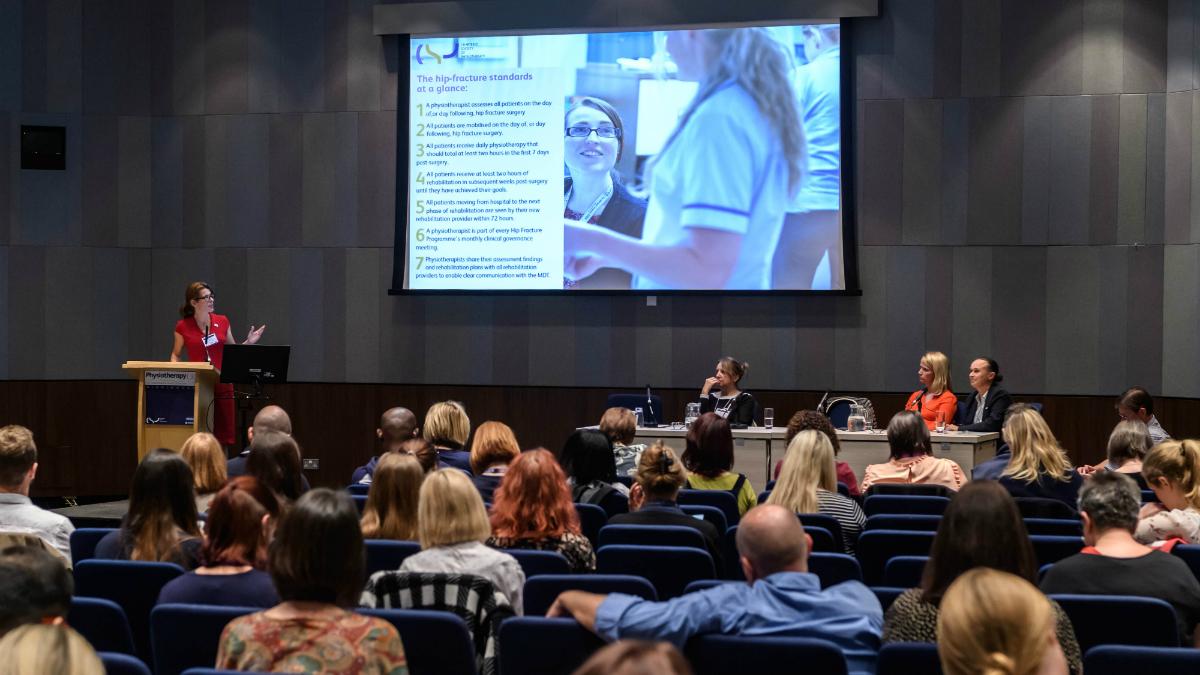The CSP’s new standards of practice for physiotherapists working with patients with hip fracture were launched at Physiotherapy UK’s first Rehab Matters session.

Pip White, CSP professional adviser, described how the variable findings from the Hip Sprint audit - involving over 130 acute trusts - prompted the CSP to create the new standards.
'There are more people living with hip fracture now and rehabilitation is vital,' Ms White said. 'We need to deliver better quality of care to those experiencing hip fracture. As part of this, we should expect to be part of multidisciplinary teams that plan as well as deliver rehabilitation.'
The conference heard from Iona Price about her late mother’s experiences of recovery from a hip fracture. She was diagnosed with delirium while in the acute ward and deteriorated in that environment. Discharge from hospital led to her delirium 'lifting', but discharge also meant a new referral was required. 'Although she was able to undertake rehabilitation at home, it wasn’t there when she needed it,' said Ms Price.
Jocelyn Hopkins, advanced physiotherapist practitioner at Weston Area Health Trust talked about their audit experience. 'We initially found we were not meeting the first three standards,' she candidly told the hall. 'Mobilisation is key and it is a routine part of hip fracture care and it’s everyone’s role,' she said. 'We started by getting patients out of bed during mealtimes with the help of nursing colleagues. Within 12 months of making changes, we had achieved the first three CSP standards.'
Pippa Ellery, clinical lead at Cornwall Partnership NHS Trust provided a community physiotherapy improvements perspective. This has included providing more focused service delivery, particularly around early mobility. 'We have also improved as a team, for example, identifying when patients are in pain. Additionally, we have improved links with the acute trust, freeing up time in physiotherapy.'
Antony Johansen, consultant orthogeriatrician and clinical lead for the National Hip Fracture Database (NHFD) told the conference: 'You can make a big impact by taking rehabilitation seriously. The 4AT score is a rapid clinical test for delirium and it is the most important assessment a physiotherapist can use. I would urge you to use it with any patients you have concerns about.'
Ms White confirmed that the CSP’s Hip Fracture Standards do incorporate delirium assessment within the indicators for the physiotherapy standards.
Find Out More
Number of subscribers: 1



































